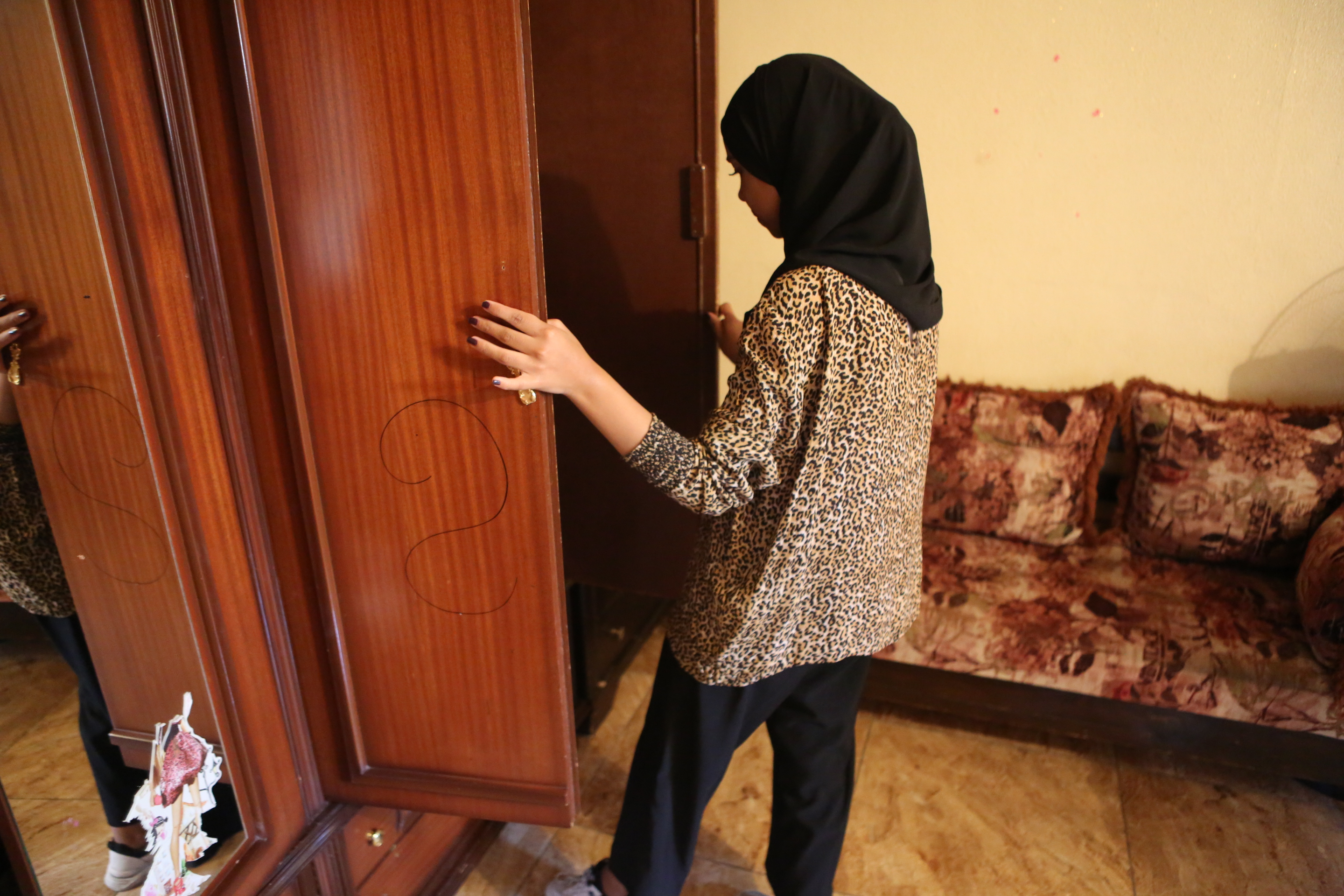A day in the life of Ivona
Ivona is a 17-year-old Palestinian girl living in Ein el-Hilweh camp, which is the largest Palestinian refugee camp in Lebanon. She dropped out of school when she was in 8th grade. She was not a strong student before the covid-19 pandemic forced schools to close, and she found learning online to be impossible. She is now studying at a private vocational training centre to become a nurse. She would like to finish her training quickly and start helping her family make ends meet, which has become far more difficult because of Lebanon’s economic crisis.
Ivona began taking part in GAGE’s participatory research in 2020.
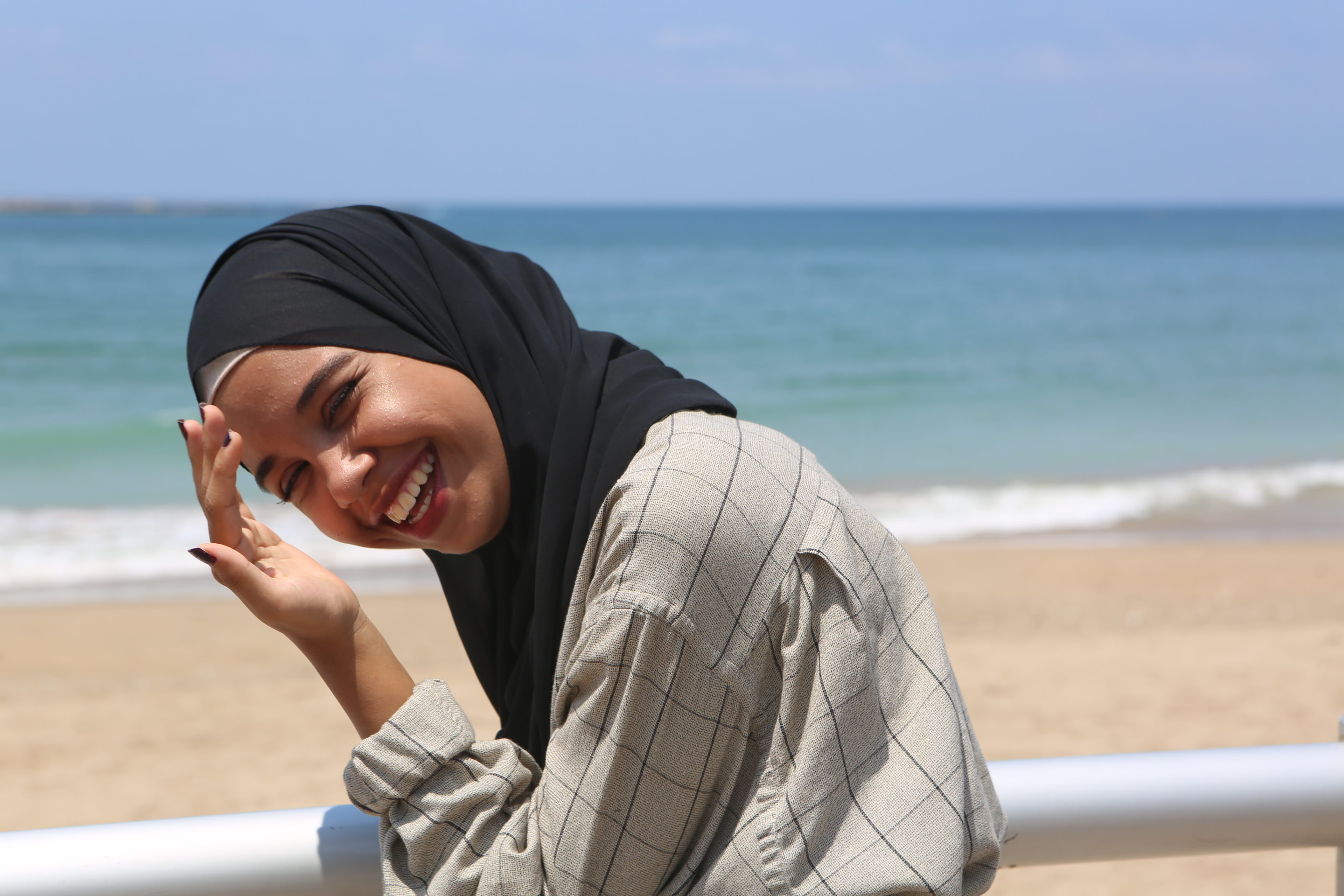
Starting the day
Ivona starts her day at 6:30 with a cup of Nescafe. She then spends an hour doing homework and studying before heading to the training centre. Ivona prefers to study in the morning so that she can see friends in the afternoon.
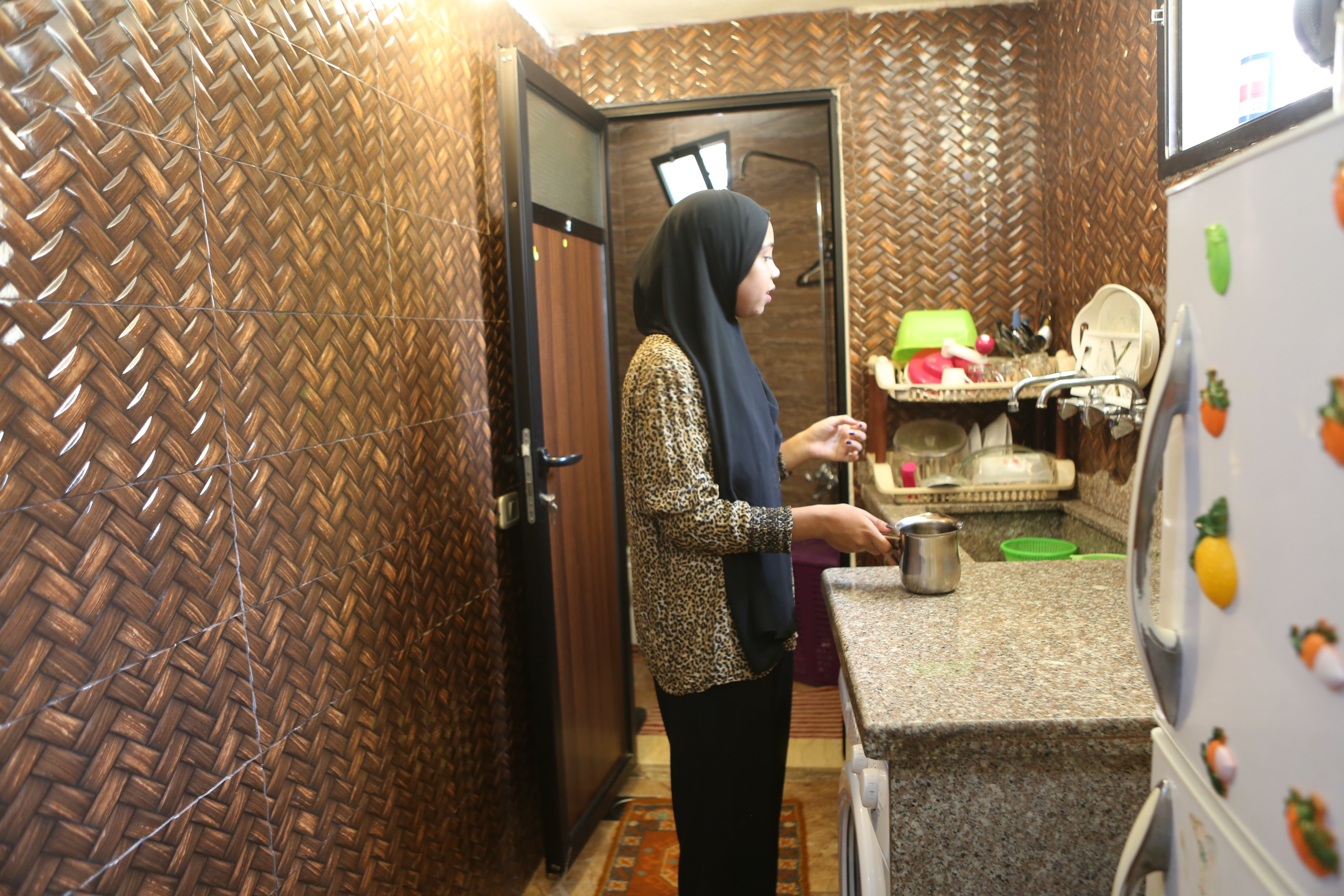
Going to school
Ivona is picked up every morning by a bus that takes her to the vocational training centre, which is in the city of Saida. Because Ein el-Hilweh camp is walled off, with barbed wire and an army check point, she and the other students are often late for class. Lebanese soldiers interrogate each one of them every day.
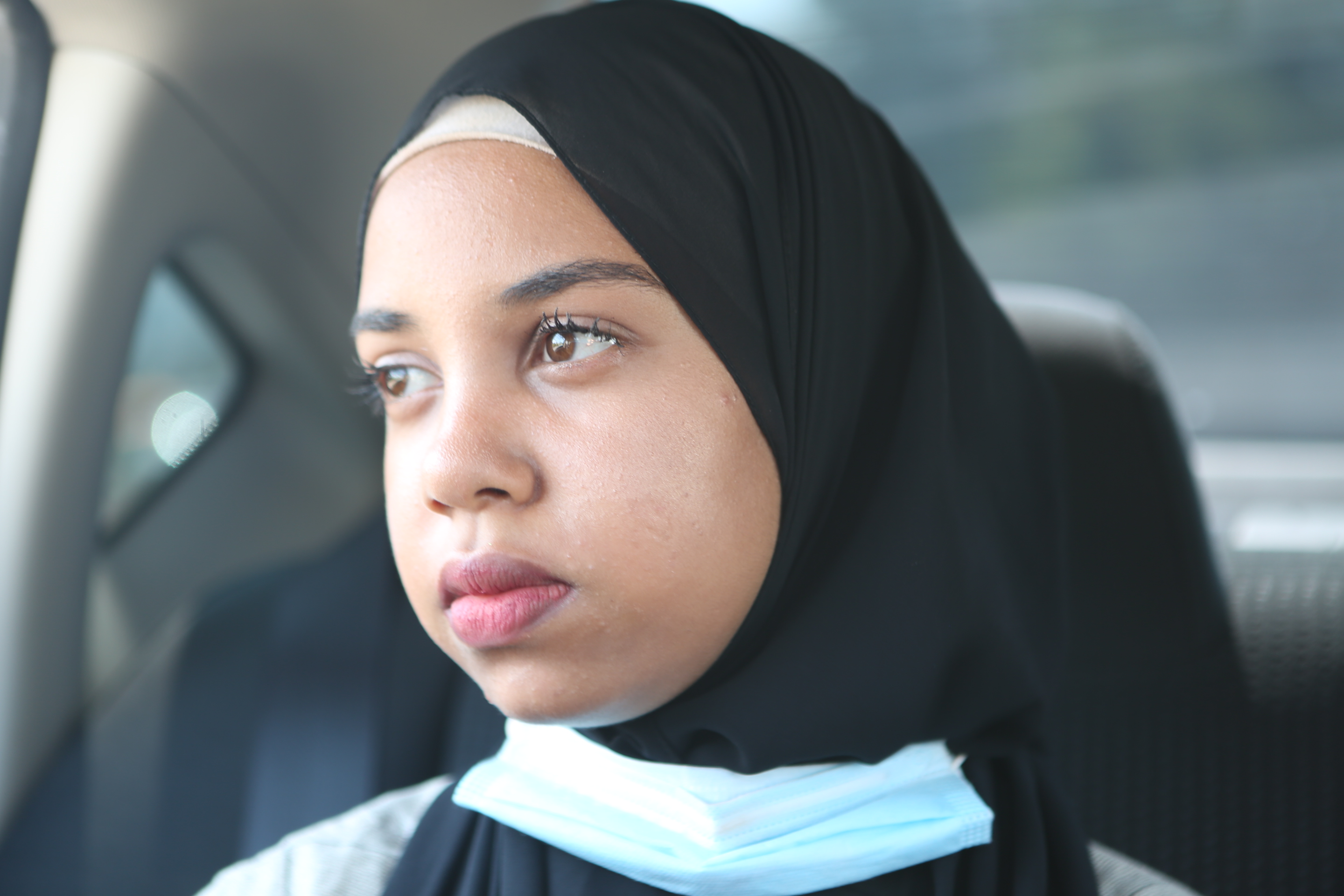
Photo: Marcel Saleh/GAGE
At the vocational school
Ivona became interested in nursing last year, when she took a short first aid course offered by the Red Cross. She liked it so much that she decided to enroll in a formal two-year training programme. Ivona attends a private training centre, but her costs—including even the bus—are covered by an NGO. This support is critical because her family has struggled even with food security since the outbreak of the economic crisis.
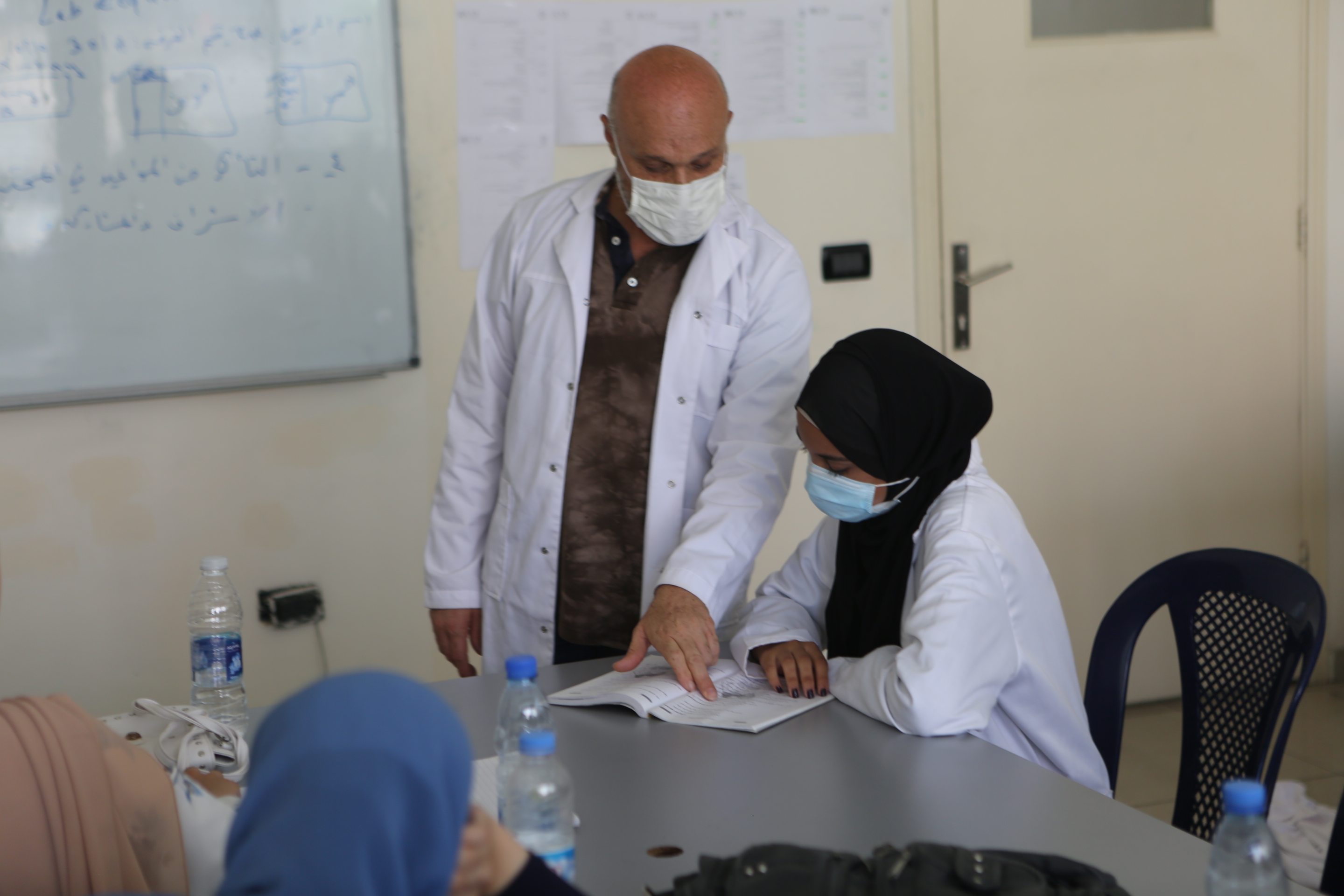
In class, Ivona is learning how to take patients’ blood pressure, administer injections and treat wounds. She is also learning how to treat patients with compassion, even when they are stressed and behaving rudely. Many of the patients that Ivona works with have neurological issues, such as Alzheimer’s, and can be quite difficult.
Because this is Ivona’s first year in the programme, most of what she is learning is classroom-based. She has not yet had opportunities to try her skills in a medical setting. Only second-year students are allowed in the hospital. Ivona is looking forward to next year.
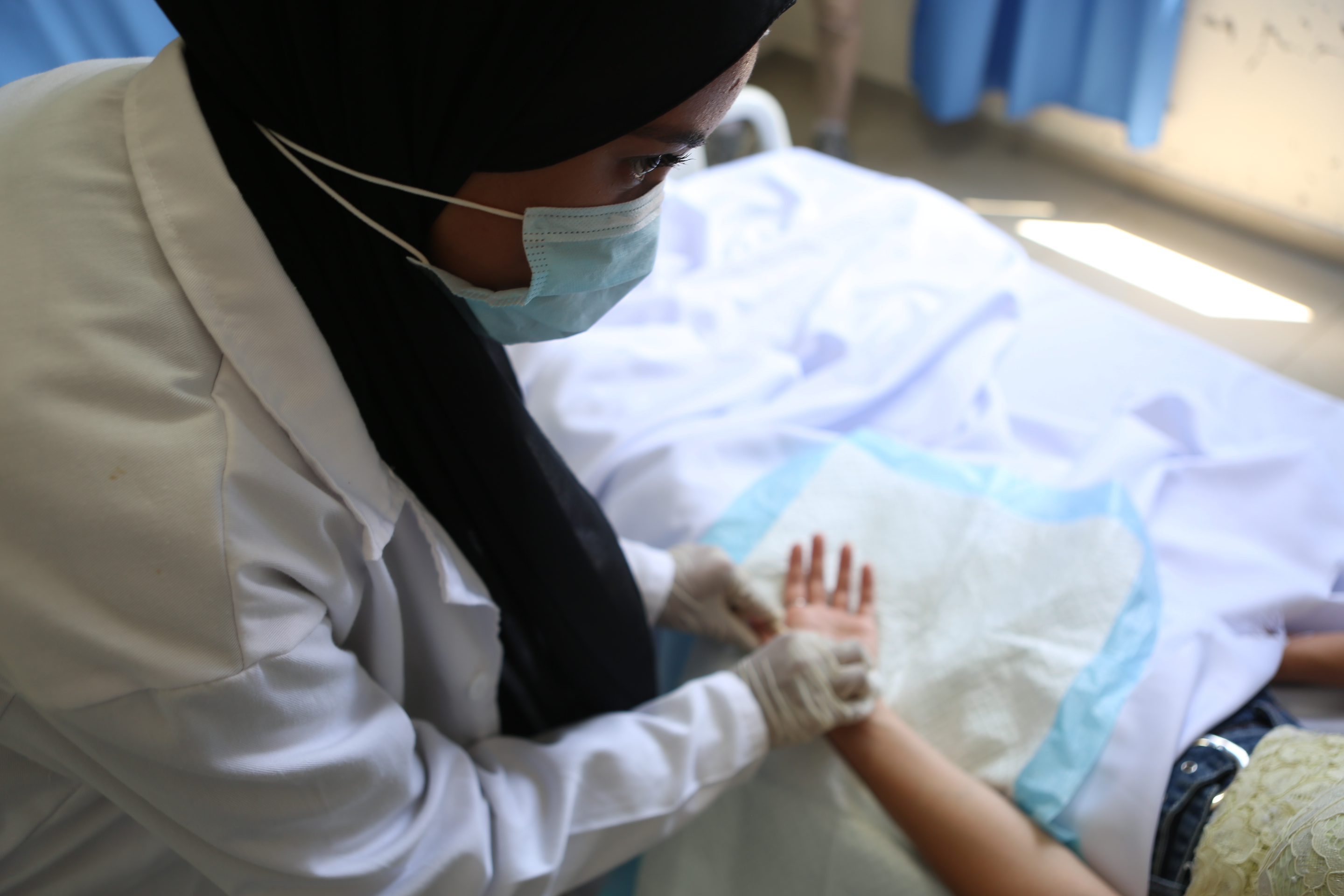
My Grandmother, my idol
Ivona’s grandmother was her role model in all things. Her grandmother dispensed loving advice and taught her to stand up for herself. Ivona repaid this in spades. She dutifully cared for her grandmother during her long illness and made sure that the correct medications were dispensed at the correct time.
Ivona nearly gave up on her nursing career before it even started. Only weeks after she began the programme, she considered dropping out because she knows that as a Palestinian without citizenship it will be difficult for her to find work, matter what her qualifications. Ivona’s grandmother convinced her to follow her dream.
A few months ago, Ivona’s grandmother died. Ivona feels she has lost her anchor in the world.
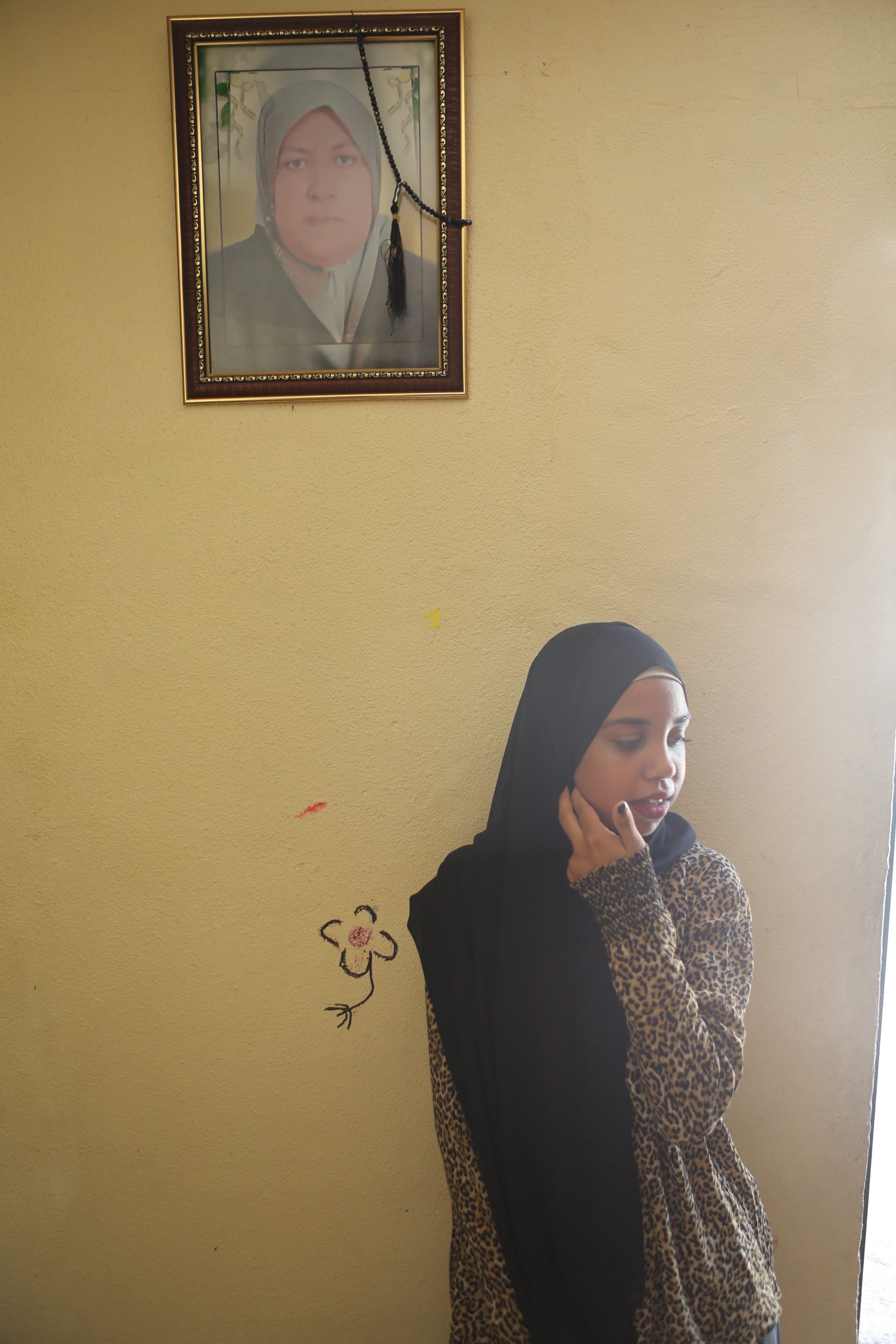
Life skills programme
When Ivona was in 7th grade, she and several other relatively low performing students were treated badly by their teachers. Their learning needs were ignored, they were yelled at, and they were sometimes beaten with sticks. Ivona came close to dropping out of school over this. However, she bravely spoke to the principal—who forced the teachers to change.
This experience led Ivona to join a life-skills class, to learn more about topics such as child rights and child marriage. The course has been so transformational that Ivona is willing to wake up early, to do homework, so that she can have her afternoons free. Ivona shares what she learns with her friends—convincing them to stay in school and to delay engagement and marriage.
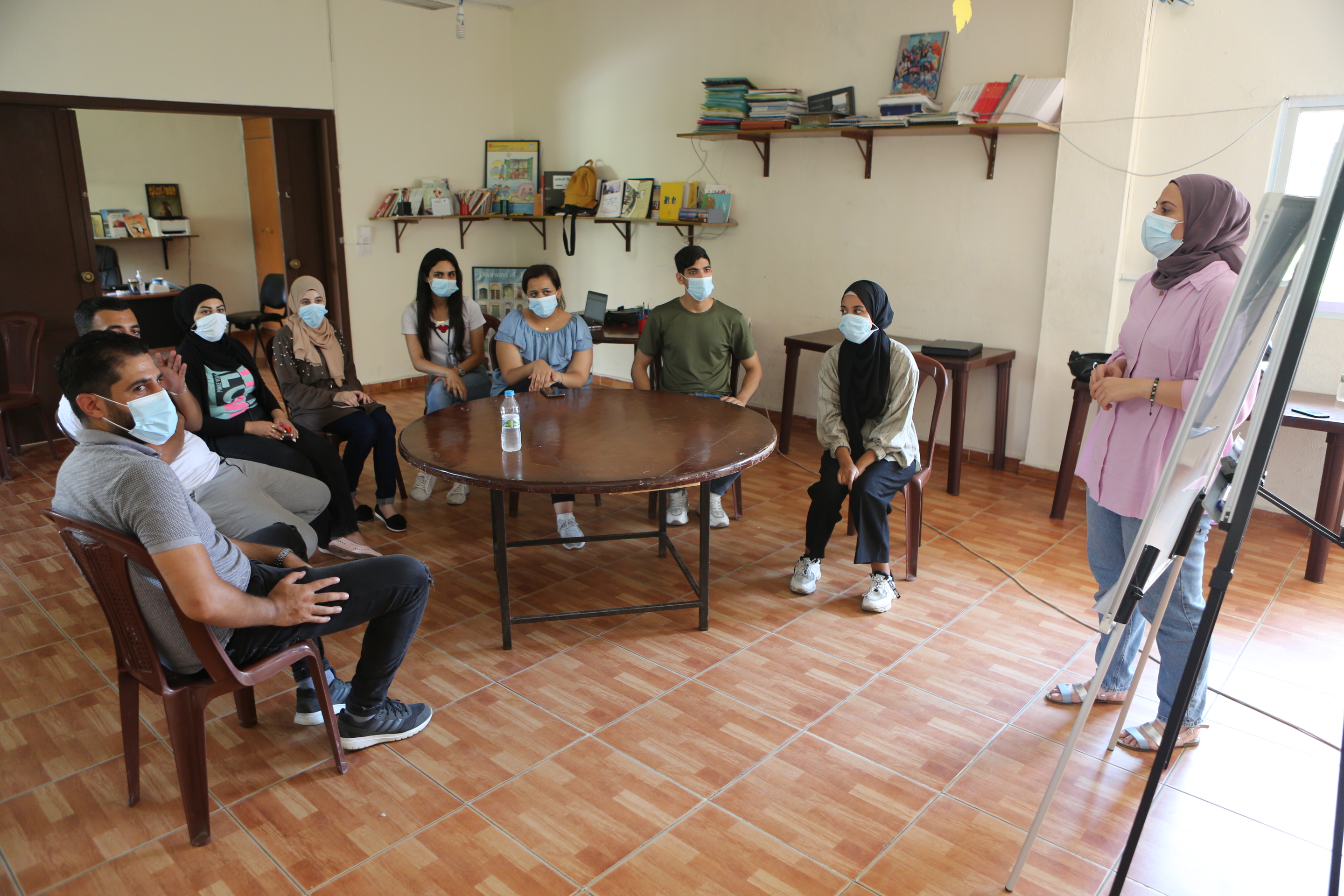
Meeting with friends
In the late afternoon, Ivona spends time with her friend Leila. Some days they watch Turkish TV. Other days they visit the market or a café. Ivona loves this time of day.
Ivona’s best friend when she was a child was a girl named Mariam. She never sees Mariam anymore, because Mariam was forced to marry a much older cousin when she was only 13. Mariam did not want to marry, and she particularly did not want to marry this cousin (whom she had never even met), but her parents insisted. Today Mariam is not allowed to leave her home or to own a mobile phone. Ivona misses her terribly.
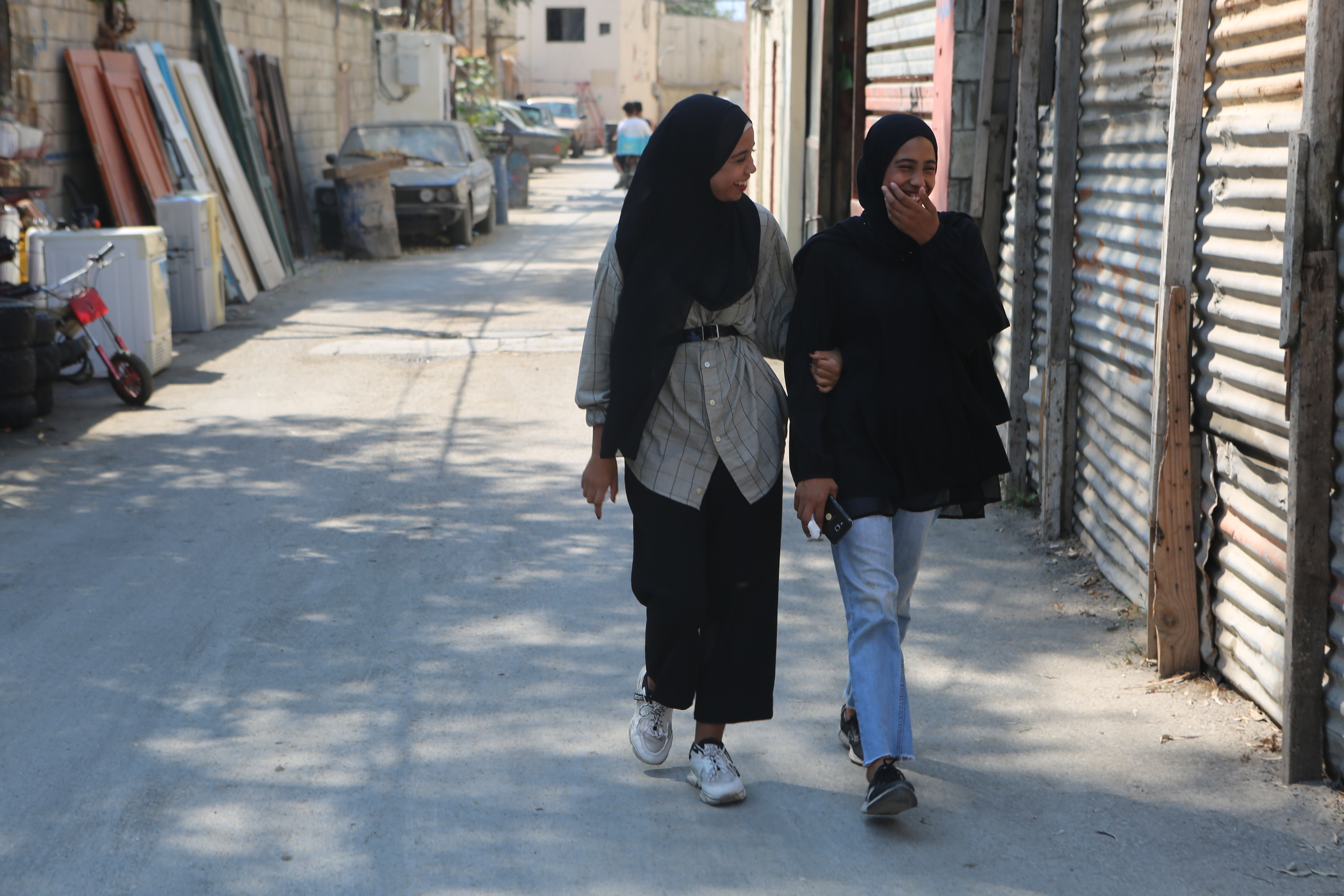
The back yard
In the evening, Ivona helps her mother tidy the house and prepare dinner for the family. She also waters the plants in their small backyard. The backyard used to be twice as large— but two years ago the Lebanese government extended the wall around Ein el-Hilweh, cutting the yard in half and costing Ivona’s family their shade.
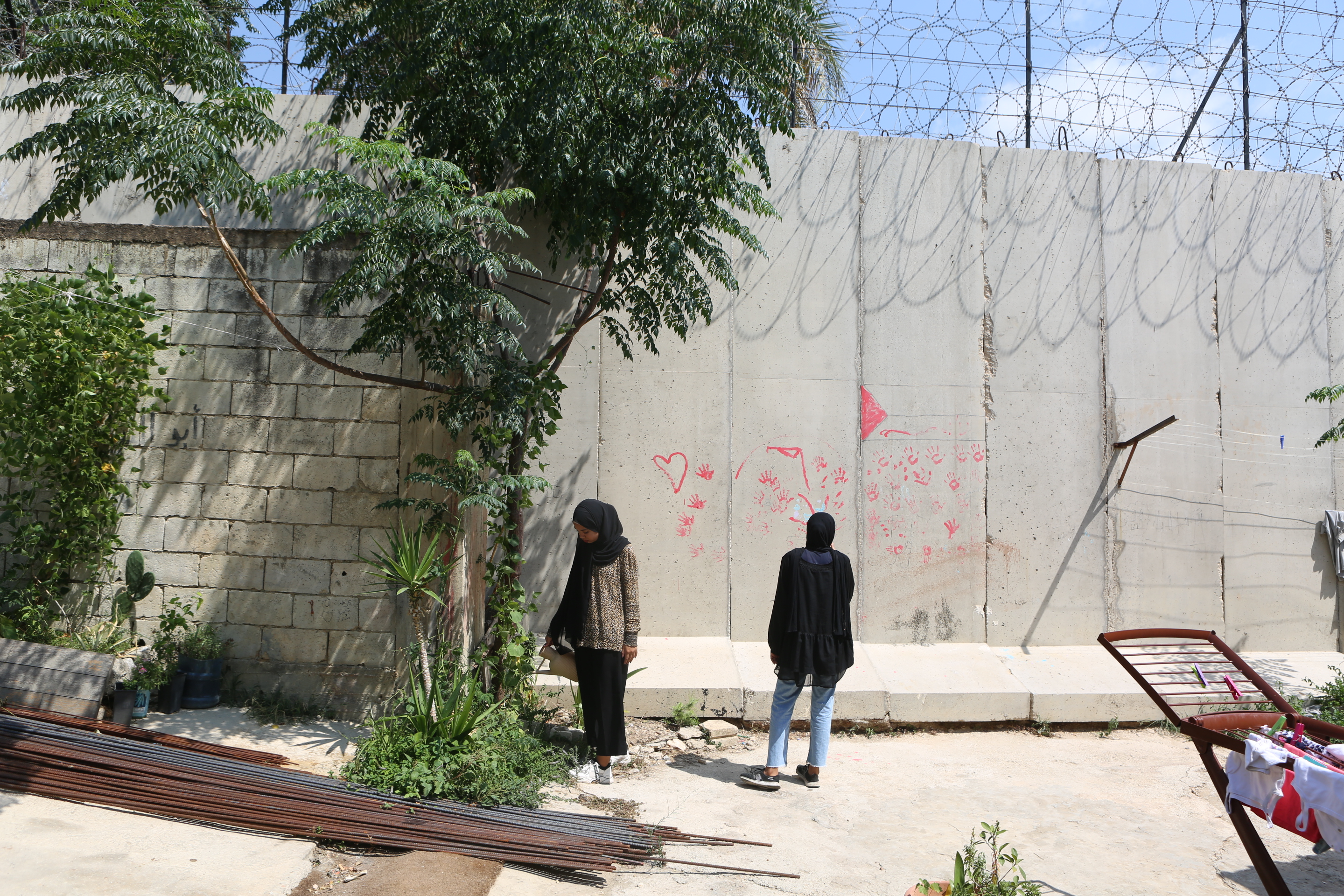
Drawing with friends
After dinner, Ivona spends at least an hour drawing. She is an exceptional artist and has an online presence to showcase her work. She has sold several of her pieces to other families living in Ein el-Hilweh. Several days each week, Ivona’s friends come to visit and they draw together. They have friendly competitions and push each other to further their skills.
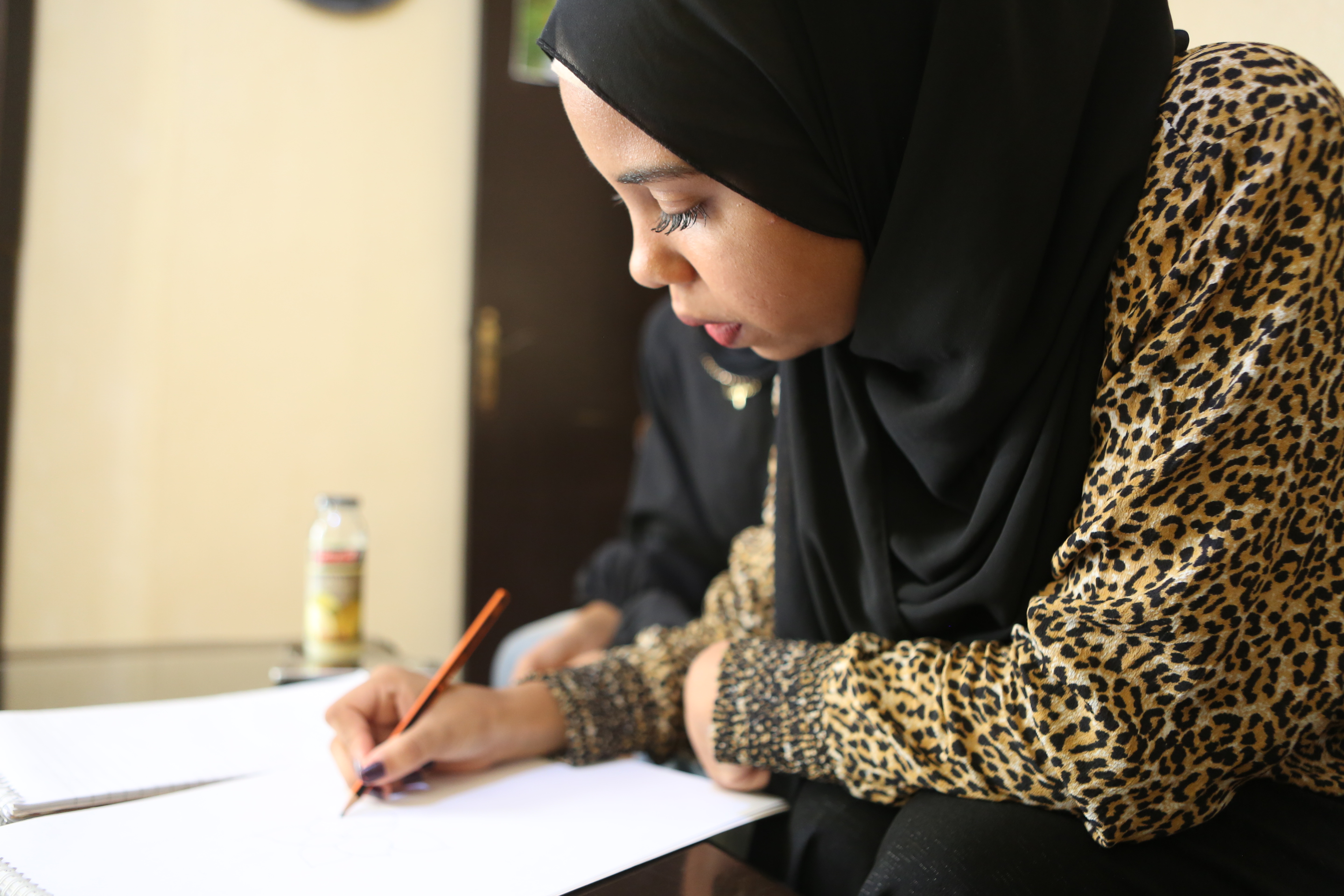
Sleeping time
After her friends leave, Ivona spends hours on social media. Her mother does not approve, and they often have arguments about online safety and the risk of becoming the subject of community gossip. Ivona has bought several phones for herself, but because she can only afford inexpensive used ones, they rarely last for more than a few months at a time. Because her days start early, Ivona makes herself go to bed by 1 am.
